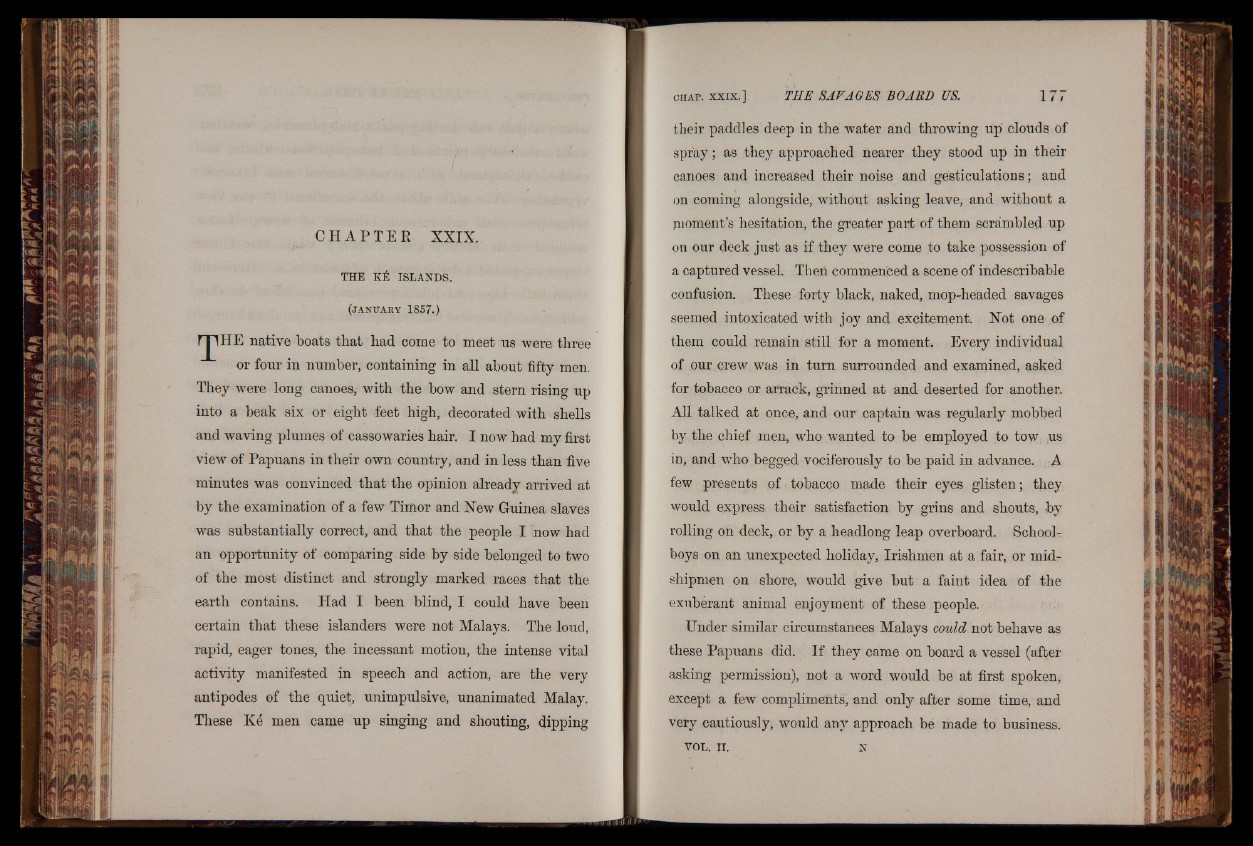
CHAP T ER XXIX.
THE K i ISLANDS.
(JANUARY 1857.)
IJIHE native boats that had come to meet us were three
or four in number, containing in all about fifty men.
They were long canoes, with the bow and stern rising up
into a beak six or eight feet high, decorated with shells
and waving plumes of cassowaries hair. I now had my first
view of Papuans in their own country, and in less than five
minutes was convinced that the opinion already arrived at
by the examination of a few Tifiior and New Guinea slaves
was substantially correct, and that the people I now had
an opportunity of comparing side by side belonged to two
of the most distinct and strongly marked races that the
earth contains. Had I been blind, I could have been
certain that these islanders were not Malays. The loud,
rapid, eager tones, the incessant motion, the intense vital
activity manifested in speech and action, are the very
antipodes of the quiet, unimpulsive, unanimated Malay.
These Kd men came up singing and shouting, dipping
their paddles deep in the water and throwing up clouds of
spray; as they approached nearer they stood up in their
canoes and increased their noise and gesticulations; and
on coming alongside, without asking leave, and without a
jmoment’s hesitation, the greater part of them scrambled up
on our deck just as if they were come to take possession of
a captured vessel. Then commenced a scene of indescribable
confusion. These forty black, naked, mop-headed savages
seemed intoxicated with joy and excitement. Not one of
them could remain still for a moment. Every individual
of our crew was in turn surrounded and examined, asked
for tobacco or arrack, grinned at and deserted for another.
All talked at once, and our captain was regularly mobbed
by the chief men, who wanted to be employed to tow us
in, and who begged vociferously to be paid in advance. A
few presents of tobacco made their eyes glisten; they
would express their satisfaction by grins and shouts, by
rolling on deck, or by a headlong leap overboard. School t
boys on an unexpected holiday, Irishmen at a fair, or midshipmen
on shore, would give but a faint idea of the
exuberant animal enjoyment of these people.
Under similar circumstances Malays could not behave as
these Papuans did. If they came on board a vessel (after
asking permission), not a word would be at first spoken,
except a few compliments, and only after some time, and
very cautiously, would any approach be made to business.
VOL. II. N